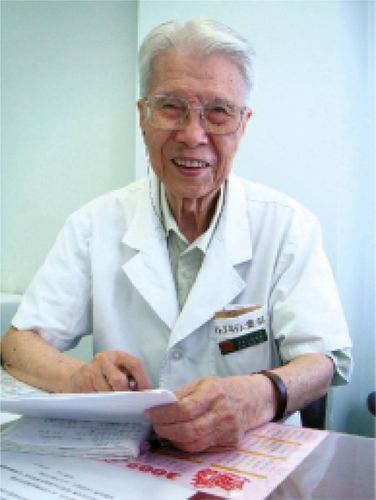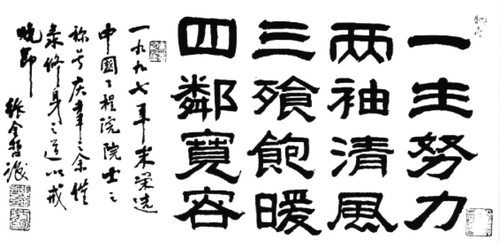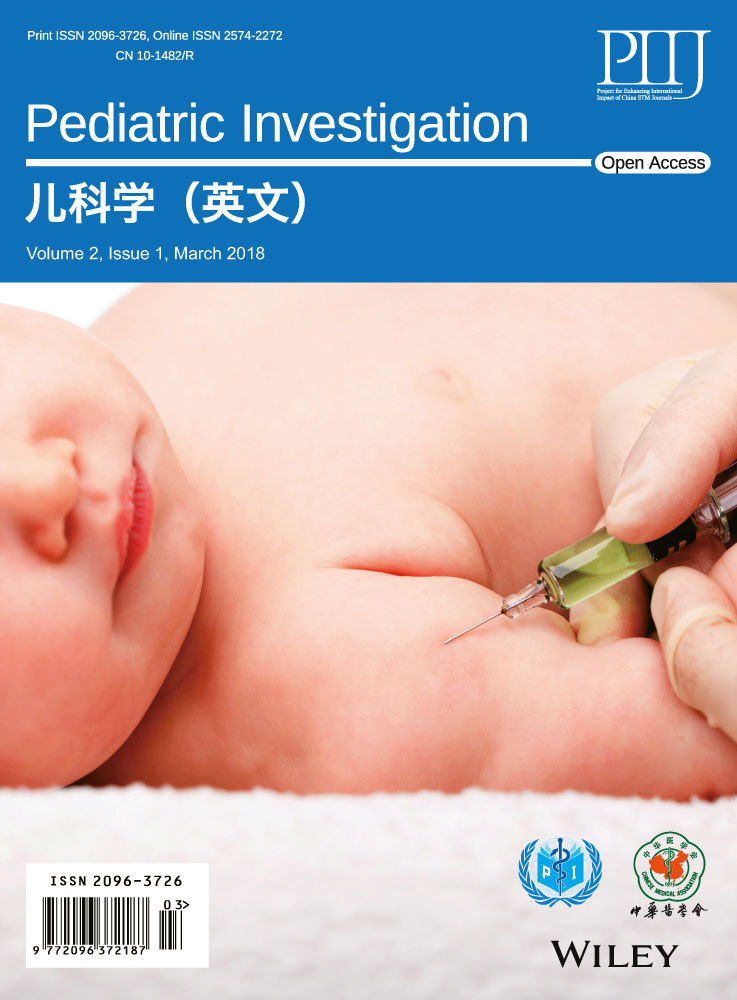Professor Jinzhe Zhang: An accomplished and upright doctor who emphasizes benevolence and humanistic care of sick children
Professor Jinzhe Zhang(1920 – ) is one of the founders of China's pediatric surgery and is considered the “father of China's pediatric surgery”. He graduated from Shanghai Medical College in 1945 and was director of the Department of Surgery and vice president of Beijing Children's Hospital since 1955. He is also doctoral mentor of the Department of Pediatrics at Capital Medical University. In 1977, he was elected as an academician of the Chinese Academy of Engineering.
In 1938, he passed the entrance exam of the Premedical Studies Program of Yenching University (precursor of the Peking University) to study medicine with a high-score essay titled “Be A Good Doctor Rather Than A Good Official”. In 1946, he graduated from Shanghai Medical College and became a resident surgeon at the Affiliated Hospital of Peking University (the current name is Peking University First Hospital). There was no public children's hospital before the New China was founded. Professor Futang Zhu, the famous pediatric expert and founder of modern pediatrics in China, proposed that a department of pediatric surgery should be established once a children's hospital was founded. Prof. Zhang was recommended to undertake the honorable yet tough task.
In 1950, Prof. Zhang established China's first pediatric surgery department at Affiliated Hospital of Peking University with only five beds. In 1955, he was appointed as director of the surgical department at Beijing Children's Hospital. Now at the age of 97, he keeps seeing patients, attending ward rounds, proposing, designing and conducting scientific researches in this hospital. He impressed patients and other doctors by his medical expertise and kindheartedness stemming from his enthusiasm and commitment to his medical career over the past seven decades.

Since the 1950s, Prof. Zhang has been devoted to emergency treatment of trauma, infections, and acute abdominal diseases in children. He summarized methods for the typing, diagnosis, and treatment of appendicitis in children and abdominal examination of infants; devised a whole set of treatment methods for children with severe infection that needed surgical management, significantly reduced the fatality rate; and summarized non-operative treatment of intussusception and ascariasis complications and classified treatment of adhesive intestinal obstruction. These achievements made a great contribution to the rapid development and high international status of China's pediatric surgery.
There were many difficulties at the beginning of China's pediatric surgery. Prof. Zhang worked together with anesthesiologic specialists to start pediatric anesthesiology by performing basal anesthesia via intramuscular injection of thiopental sodium plus local anesthesia, thereby to speed up the development of pediatric surgery. At that time, the lack of pediatric medical devices also stalled the development of pediatric surgery. Prof. Zhang took hardware tools home to create, manufacture and improve surgical devices and instrument. He invented more than 50 surgical instruments, among which a ring-shaped pincer designed for megacolon surgery is called “Zhang's pincer” by foreign colleagues.
Through hardworking, Prof. Zhang has invented many convenient and effective treatment methods recognized by the international academia and blazed a trail for pediatric surgery with Chinese characteristics. Some of his methods are still popular in some developing countries. In 2000, Prof. Zhang became the first Chinese winner of the Denis Browne Gold Medal presented by the British Association of Pediatric Surgeons. The award is regarded as the Nobel Prize in pediatric surgery. In 2010, he received the Lifetime Achievement Award from the World Federation of Associations of Pediatric Surgeons. Another contribution made by Prof. Zhang to China's pediatrics is that he has trained many students, most of whom have become experts in pediatric surgery. China's pediatric surgery is acclaimed by domestic and international pediatric surgical communities thanks to the tremendous efforts made by Prof. Zhang and other pioneers.
Prof. Zhang is proud of two work skills: first, he can explain the etiology, pathology, and treatment of a disease within 3 minutes in plain words without using arcane medical terms; and second, he can conduct a brief physical examination on pediatric patients within 1 minute to identify problems. He said the two basic skills were acquired through many years practice.
Prof. Zhang reckoned that aside from high skills, good virtues are important as well. He told young doctors:

- With my life-long efforts,
- I help to develop the Pediatric Surgery in China;
- With my sincere medical belief,
- I struggle to be free from any corruption and bribery;
- With my simple diet,
- I enjoy my three healthy meals a day;
- With my hard-learned tolerance,
- I share with neighbors my friendship and expertise.
“Good pediatricians surely love children and consider for children in terms of treatment, prognosis, and financial affordability.” His enthusiasm for pediatric surgery moved people around him: he would check a child from his/her mother's back in order not to frighten the child; make magic for and give toys to crying children; he would warm up his own hands before touching children in cold days……
Prof. Zhang has a habit when seeing patients. He would stand up from his chair and say to each child and their parents: “Sit down please! I'm Dr. Zhang, how can I help you?” He told young doctors to greet patients. “My teacher asked me to do so when I was a student.” After seeing the patients, he would stand up to see them off. He has stuck to the habit for more than seven decades, which can hardly be kept for so long if not out of love for the work and children.
It is the love for pediatric patients that propels Prof. Zhang to obtain outstanding achievements: 40 books, more than 50 improved or innovative technologies, more than 10 technological progress awards above provincial level, no deaths in 15,000 cases of appendicitis in children treated in his department in 30 years, and no deaths in 100 consecutive cases of acute strangulated intestinal obstruction (including cases with shock).
During the recent few years, Prof. Zhang continuously and increasingly emphasizes the importance of humanistic medicine and humanistic care of sick children. He gives lectures, presentations during medical symposia, seminars and publishes essays on his analyses of issues and problems existing in the field of humanistic medicine. Humanistic medicine involves a wide range of issues. Major questions that need pediatric humanistic medicine to answer includes the following. Many children are afraid of pain caused by injections or taking blood specimen via venous puncture etc. As a result, many children would cry or try to run away whenever they see a doctor or a nurse in white coat. The fear is often worsened by some parents who try to stop a child doing something by saying “Stop! Otherwise I will ask a doctor or a nurse to come with a needle!” Now the question is: How should we reduce or avoid the pain and fear caused by injections etc.? Furthermore, how do we completely convert the situation and make the relationship between the sick children and care givers harmonic and friendly? Some people may say “That is impossible”. But Prof. Zhang believes that it is possible if we make sufficient efforts to change our thinking, behaving, and especially if we recognize that children's thinking, personality and lack of reliable language to express their perception and desire are largely neglected.
Another important issue is related to parents. Pediatric care givers provide services to sick children, i.e., sick children are the target population of our medical services. The question is: have you ever thought if parents are also a part of our target population of service? Prof. Zhang's answer would surely be “Yes”. But why? And how do we serve the parents at the same time? The editorial team of this journal will answer these and many other questions in the future issues in the form of brief stories. We call for your attention.
ACKNOWLEDGEMENTS
We thank Xiaohan Zhou for providing material for this report.
CONFLICT OF INTEREST
No conflict of interest exists with this manuscript.




